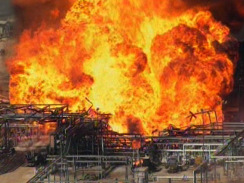Hundreds of residents living near the Port of Houston attended a Town Hall meeting Thursday evening at Holland Middle School to learn about the changes coming to their communities with the expansion of the Port.

Residents filled the Holland Middle School auditorium to hear the preliminary results of neighborhood surveys and to share their concerns with local officials.
“For far too long, the voices of community members living with the health and safety impacts of the Port of Houston have been ignored in the decision making about the Port’s economic growth, routing of hazardous and heavy truck traffic, strategic positioning of pollution control devices, and disposal of hazardous wastes. The Healthy Port Communities Coalition was created in response to this void.” said Hillary Corgey, originally from the Houston area and representing Public Citizen at the meeting, “We seek to provide information and to give a voice to portside communities that have historically been left out of this decision making process as they organize to make their communities safer and healthier for all who live there.”
Preliminary results of Port Side Community Survey Released
The Coalition is currently conducting surveys in port-side communities to determine the full extent of port impacts on residents of these communities and to raise awareness about their causes. The preliminary results of this ongoing survey were discussed at the town hall. Some notable early results include:
- Port side community residents concerned about pollution from industries and port operations along the ship channel.
- 61% concerned about ships and cargo equipment pollution.
- 67% concerned about train and rail yard pollution.
- 86% concerned about refinery and chemical plant pollution.
- 82% concerned about 18 wheeler/truck pollution.
- 89% concerned about local pollutions’ effects on their health and 54% of respondents do not have health insurance.
- Cancer rates in these communities are more than 8 times the Texas average.
- Children have twice the rate of asthma in these communities than other Texans.
The only good news, if you can call it that, while 54% of the respondents do not have health insurance, nearly 80% reported they have had a routine exam in the last two years. What we don’t know is if this is high because of higher rates of disease. Residents may have characterized more frequent trips to the doctor, the emergency room, or another clinic as “a routine” exam.
- The survey also identified the need for job opportunities and job training.
- 42% of households have an unemployed resident.
- 81% said there is a need for job training.
- 69% said there is not sufficient work in their area.
During the town hall, Patricia Gonzales, a mother of three from Pasadena and member of the Texas Organizing Project, spoke up saying, “All of my children have asthma, and after moving to Pasadena, I too have asthma. We need to know what impact these changes will have on our health.”
“The Coalition is here to help port-side community residents speak with a unified voice on issues that affect their health and well-being,” said Adrian Shelley, Executive Director of Coalition member Air Alliance Houston. “These communities have borne the burden of Houston’s intense industrial development.”
Also attending the Town Hall meeting to listen to and address residents’ concerns were Bob Allen, the Director of Harris County Pollution Control Services Department, Marcus Woodring, Managing Director of Health Safety Security and Environment at the Port of Houston, Jerry Peruchini, chief of staff of Houston City Councilman Ed Gonzales, Edna Campos with Councilmember Melissa Noriega’s office, Rhonda Sauter of the Mayor’s Citizens Assistance Office, State Representative Mary Ann Perez, Linda Jamail with State Representative Ana Hernandez-Luna’s office, Marisol Rodriguez from Senator Sylvia Garcia’s office, and Myriam Saldivar from State Representative Armando Walle’s office.
“We recognize our constituents living near the port of Houston/ship channel area have to contend with issues not common to the rest of Houston and want to thank these residents for taking the time to make them known to us. The survey will be helpful as we try to address the impacts of the port and its expansion on these communities; that’s why I’ve urged the Port Authority’s Chair to create a Community Advisory Board: said State Senator Sylvia R Garcia. “Such an advisory board would provide continuing communication and dialogue between the community and the Port’s leadership on this and other issues that impact all the Ship Channel area communities.”
The attendees were divided into groups to begin outlining the concerns of port community residents.
“We want to know what’s going on around us and how it will affect our everyday lives,” concluded Gonzales. “This town hall meeting is an opportunity for us to begin that conversation.”
“One of the recommendations posed to the residents living near the ports was to ask for community representation on the Port of Houston Authority Commission,” said Debbie Allen, a resident of Pleasantville and member of the Pleasantville Environmental Coalition. “While my neighbors in the community are concerned about local hiring for port jobs, job training for port jobs, environmental protection and access to healthcare, I believe representation on the Port Commission would give our communities a seat at the table so that we can begin addressing these issues. One way this could be done is by putting this change into Representative Dennis Bonnen’s Port of Houston Authority Sunset Bill – HB 1642.”
###
The Healthy Port Communities Coalition is an open-ended collaboration that names among its members: Air Alliance Houston, Pleasantville Environmental Coalition, Public Citizen, Texas Environmental Justice Advocacy Services and the Texas Organizing Project.
Ryan Korsgard reports on Houston’s Channel 2
Concerns over Port of Houston cancer risks
Houston Univision45 coverage
Amenazada la salud de los residentes del puerto de Houston
Read Full Post »


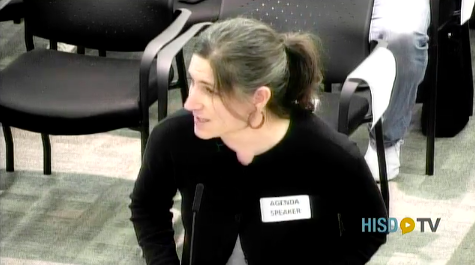

 Date: Thursday, 11/17/2016
Date: Thursday, 11/17/2016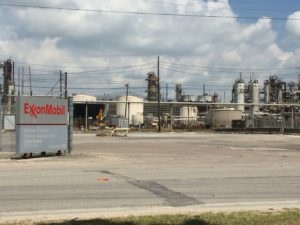
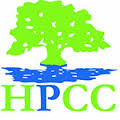
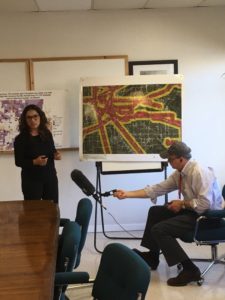


 If you live in the Houston area, you may be in the danger zone of a toxic chemical facility, and oil and chemical industry executives are trying to keep it that way. These toxic chemical facilities are vulnerable to accidents or terrorist attacks, even though safer alternatives are available. Now Congress is considering industry-backed legislation (HR 908) that would deny the Department of Homeland Security authority they have requested to require high risk facilities to prevent chemical disasters by using safer, available alternatives.
If you live in the Houston area, you may be in the danger zone of a toxic chemical facility, and oil and chemical industry executives are trying to keep it that way. These toxic chemical facilities are vulnerable to accidents or terrorist attacks, even though safer alternatives are available. Now Congress is considering industry-backed legislation (HR 908) that would deny the Department of Homeland Security authority they have requested to require high risk facilities to prevent chemical disasters by using safer, available alternatives.
